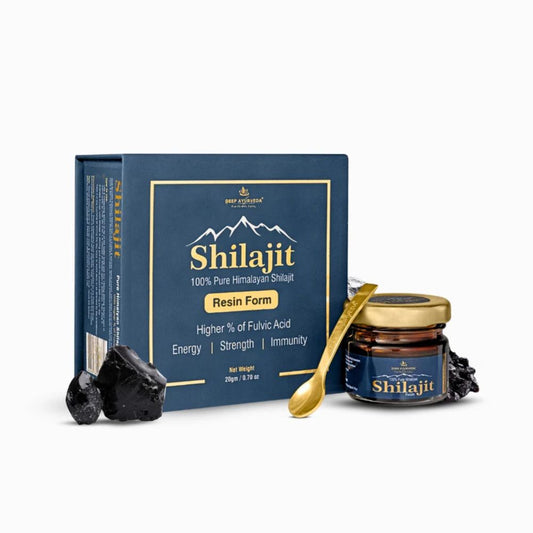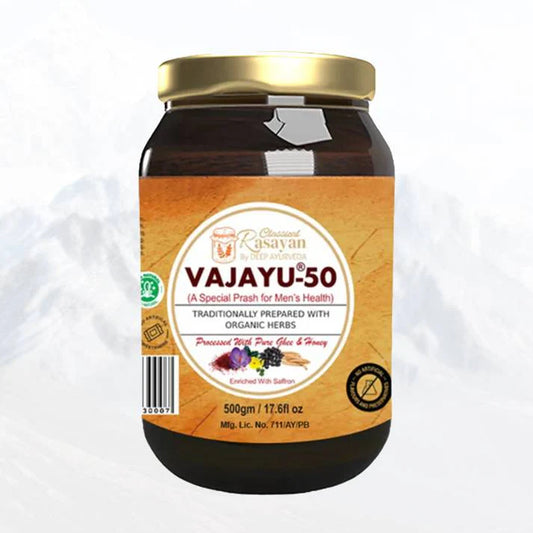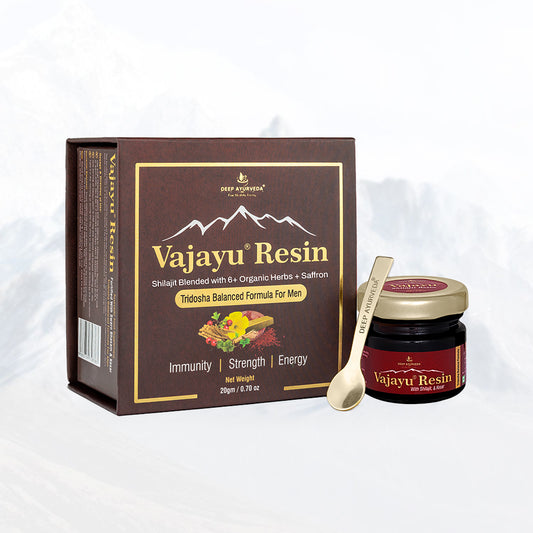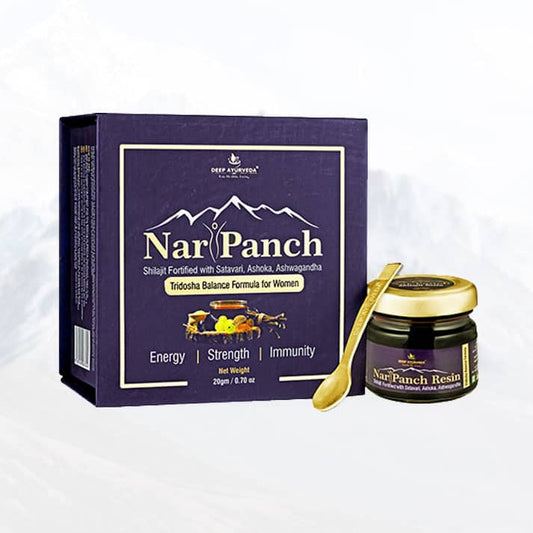In today’s fast-paced lifestyle, women often face immense physical and emotional stress due to juggling multiple responsibilities—work, family, and societal expectations. In Ayurveda, Shatavari (Asparagus racemosus) is considered a Rasayana herb, particularly beneficial for the female reproductive system. Known as "the queen of herbs", it helps balance hormones, promotes fertility, nourishes the uterus, improves lactation, and calms the nervous system. Its adaptogenic properties also help reduce stress, anxiety, and mood swings, making it a holistic support for women’s wellness in the modern era.
The name Shatavari translates to "a woman who possesses a hundred husbands", symbolizing its powerful effect on female reproductive health .While Shatavari is widely known for its benefits in female reproductive health, its therapeutic value in Ayurveda extends far beyond. Classified as a Rasayana in classical texts, Shatavari works on strengthening overall immunity, nourishing all dhatus (tissues), and rejuvenating the body and mind. It also supports male reproductive health by enhancing sperm quality, libido, and stamina.
Shatavri And Its Properties-
✅ Scientific Name:Asparagus racemosus
✅ Family:Asparagaceae
🔸 Rasa (Taste) –
Madhura (Sweet), Tikta (Bitter)
Madhura rasa nourish body tissues (dhatus) and help pacify Pitta and Tikta ras vitiatesVata dosha.
🔸 Guna (Qualities) –
Guru (Heavy), Snigdha (Unctuous)
These qualities make Shatavari grounding, nourishing, and cooling — ideal for debility, dryness, and hormonal imbalance.
🔸 Veerya (Potency) –
Sheeta (Cooling)
Shatavari’s cooling nature soothes inflammation, excess heat, and hormonal disturbances, especially beneficial in Pitta disorders.
🔸 Vipaka (Post-digestive effect) –
Madhura (Sweet)
This helps in building ojas (vital energy), strengthening immunity, and promoting reproductive health.
🔸 Dosha Karma (Effect on Doshas) –
Pacifies Vata and Pitta
Ayurvedic Samhitas Reference of Shatavari-
"न्यग्रोधोदुम्बराश्वत्थप्लक्षैक्षु बिल्ल्वशात्त्रवः।शृङ्गाटकः मेदा महामेदा मधूकः क्षीरकाकोली।काकोली शतावरी पयस्या जीवकर्षभकौ॥"Charaka Samhita – (Charaka Sutra Sthana 4/13)
➤ Shatavari is mentioned under Jeevaneeya Mahakashaya – herbs that promote longevity, strength, and vitality.
शतावरी गुरु शीतला मधुरा स्निग्धा बलप्रदा |स्तन्यजननी वृश्यैव रसायनी बलप्रदा ||. Bhavaprakasha Nighantu – Guduchyadi Varga
➤ Shatavari is heavy, cooling, sweet in taste, unctuous, increases strength, promotes lactation, is aphrodisiac, rejuvenating, and nourishing.
शतावरी मधुरा स्निग्धा शिता वृष्या रसायनी |स्तन्या जनयति स्वादु गुरु पित्तानिलापहा || Sushruta Samhita – Sutra Sthana 46/333
➤ Shatavri is Vrishyaa – Aphrodisiac, Rasayanee – Rejuvenator, Stanyaa Janayati – Increases breast milk, Swaadu – Palatable, Guru – Heavy, Pitta-anila-apahaa – Pacifies Pitta and Vata doshas
Key Benefits of Shatavari-

1. Supports Female Reproductive Health
2. Promotes Lactation
4. Reduces Menopausal Discomfort
5. Boosts Immunity & Vitality
6. Promotes sperm health, enhances libido
7.Helps in weight gain
8.Acts as a Rejuvenator
9.Balances Vata & Pitta Dosha
10. Supports Mental Health
11. Soothes Digestive System
Formulations of Shatavari-
Shatavaryadi Churna
Shatavari Ghrita
Shatavari Kalpa
Shatavari Ksheerapaka
Shatavari Taila
Stanyajanana Kashaya
Conclusion-
Shatavari, hailed as the "Queen of Herbs" in Ayurveda, is a powerful rejuvenative and adaptogenic herb that supports women’s health at every stage of life—from menarche to menopause. Instead of relying on hormone-based medications, embrace the healing wisdom of Ayurveda through this time-tested herb that nourishes from within.







